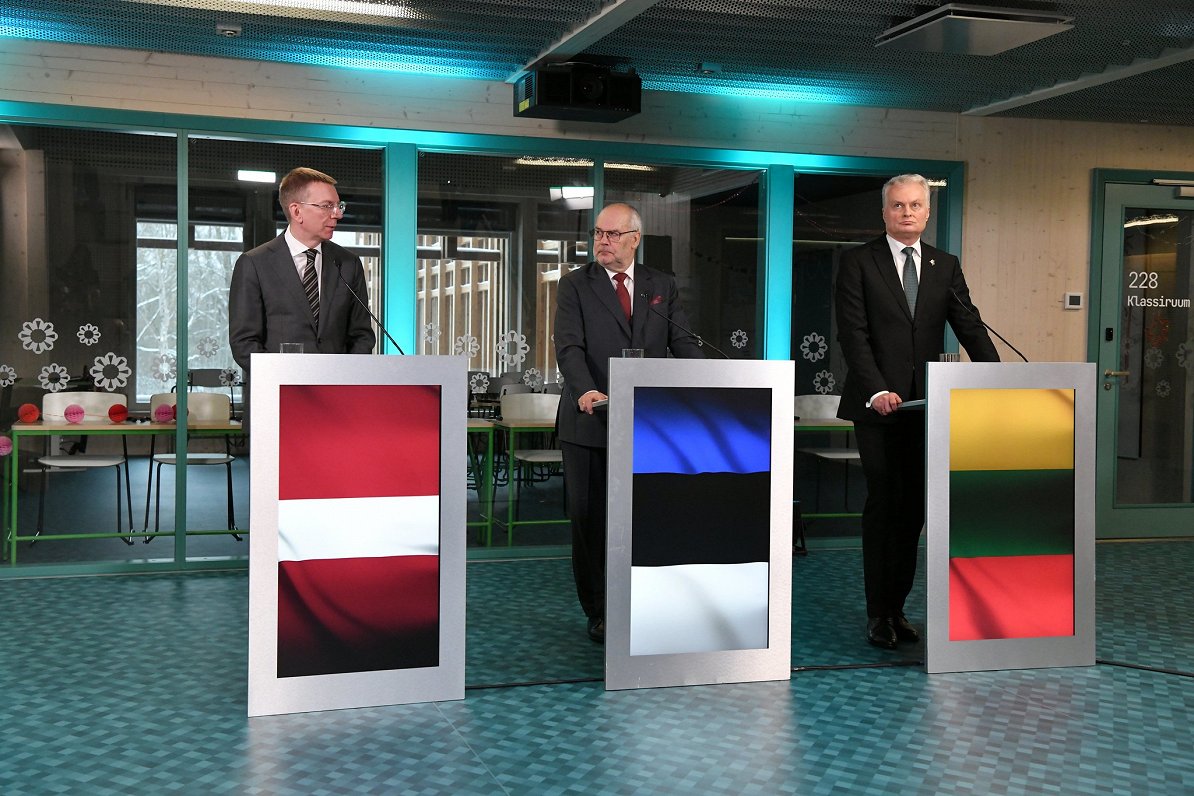The three Presidents were meeting in Tallinn, Estonia.
Latvian President Edgars Rinkēvičs, along with President of Estonia Alar Karis and President of Lithuania Gitanas Nausėdas said they hoped the IOC would think again after the organization appeared to bend over backwards to ensure Russian and Belarusian athletes could compete despite the ongoing war in Ukraine launched by the aggressor states.
“To my mind, if nothing changes, it would be very difficult to see Ukrainian or Latvian athletes competing there. But this is, of course, a decision that needs to be taken by the governments and sports communities in every country and, of course, it has to be well coordinated and well thought through with like-minded nations, including Ukraine, the Baltic nations, and other European nations that are not happy with these decisions,” Rinkēvičs said.
On December 8 the Executive Board (EB) of the International Olympic Committee (IOC) decided that so-called Individual Neutral Athletes (AINs) who have qualified through the existing qualification systems "will be declared eligible to compete at the Olympic Games Paris 2024... Individual Neutral Athletes are athletes with a Russian or Belarusian passport," the IOC said.
The three heads of state also discussed other matters of regional concern.
"The unity and close cooperation of the Baltic states strengthens regional security. The institutions of the Baltic States work closely together to address common challenges. This is perfectly confirmed by the cooperation between the institutions of the field of internal affairs. Latvia is grateful to Estonia and Lithuania for the support provided to the State Border Guard in the fight against Belarus' hybrid attack and artificially created migration crisis," said Rinkēvičs.
The President also noted this year's joint decision on desynchronization from the Russian-controlled BRELL electricity grid system and synchronization with continental European grids in 2025, which will contribute to the energy security of the Baltic States, according to a release from the Presidential Chancellery.
President Rinkēvičs also emphasized the importance of the implementation of the Rail Baltica project, which is essential not only for improving the connectivity of the Baltic States, but also for ensuring military mobility.
As part of the visit, the President also visited Pelgulinna State Elementary School in Tallinn, where he participated in a discussion with young people about the importance of democracy and the challenges posed by populism.



























